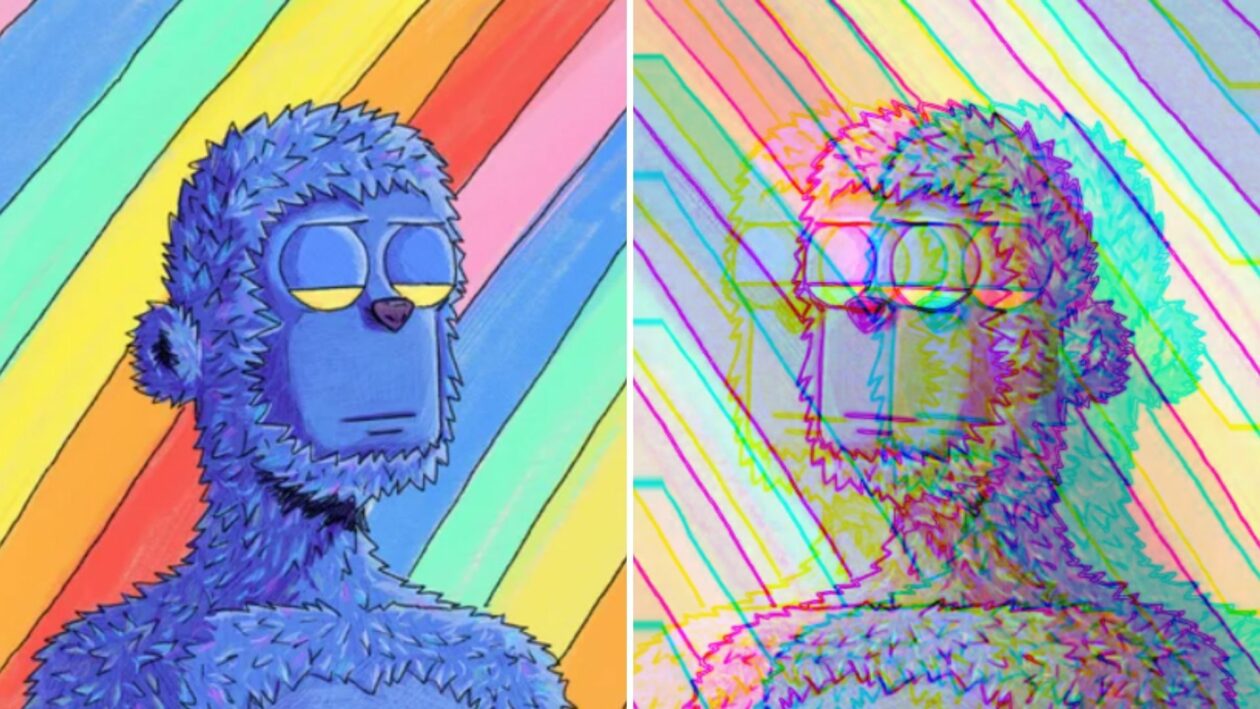Non-fungible token (NFT) sales in November rose for the first time in seven months to top US$530 million, shrugging off the sharp declines in cryptocurrency prices following the collapse of Bahamas-based crypto exchange FTX.com earlier in the month.
November sales rose 13.2% in value terms from October, despite an 18.75% decline in individual transactions, according to NFT aggregation site CryptoSlam.
The market turbulence makes it difficult to draw concrete conclusions about what drove the increase, said Yehudah Petscher, NFT relations strategist for CryptoSlam, in an interview with Forkast.
The enthusiasm remains for the future of NFTs in a Web3 decentralized internet built around blockchains, but “there’s just more and more confusion about the short term,” he said.
Giulio Xiloyannis, co-Founder of Web3 venture capital studio LiquidX, said so-called “whales,” or investors with large holdings in NFTs and cryptocurrencies, are more resilient to shocks like FTX and seek opportunities in a market slump.
That may help explain the higher value sales even as transaction numbers fell, said Xiloyannis, who is also the chief executive officer of Pixelmon, which owns the metaverse-based online role-playing game of the same name.
Damage
Despite November’s gains, Petscher told Forkast that concern about how the damage may spread from the FTX collapse was creating uncertainty in the NFT market.
A wallet connected to FTX’s now defunct brokerage arm Alameda Research holds 57 NFTs of the highly sought-after Bored Ape Yacht Club (BAYC) and the Otherside collections, including 31 BAYC that are considered rare. The collection, which remains in an Alameda wallet, could be worth millions of dollars.
FTX’s investment unit, FTX Ventures, was also an investor in BAYC creator, Yuga Labs.
“Everybody waiting to see what the trickle-down effect is from that,” Petscher said, “those are still the reasons why people are not ready to dive right back into the deep end with NFTs, because we don’t feel like we’ve seen all there is that’s supposed to happen or that may happen yet.”
One of the blockchains most hit by the FTX collapse was Solana. It had a market cap of US$11 billion at the start of the month, which had slumped to just US$4.9 billion as of Friday afternoon in Asia.
However, some Solana-based projects continued to sell in the past 30 days, with y00t, DeGod and Claynsaurz all sitting within the top 25 collections for the month.
As usual, the “blue chip” collections associated with BAYC dominated the top of the list, as did fellow favorite CryptoPunks. BAYC saw over US$60 million in transactions in the past 30 days, more than double that of runner-up, Mutant Ape Yacht Club.
Headwinds
A negative development for NFTs is the announcement by Coinbase Global Inc., the largest crypto exchange in the U.S., that customers using the Apple Inc. operating system will no longer be able to send NFTs using Coinbase’s wallet.
This is due to a policy change to give Apple 30% of the “gas fees” required to process NFT transactions.
“Apple has introduced new policies to protect their profits at the expense of consumer investment in NFTs and developer innovation across the crypto ecosystem,” Coinbase tweeted in announcing the change.
Last month Forkast reported on a controversial trend in NFT marketplaces, especially those based on the Solana blockchain, to make paying creator royalty fees optional.
Market leader OpenSea still mandates royalty payments, while the largest Solana-based marketplace, Magic Eden, had made the fees optional as a way to attract users.
However, Magic Eden on Dec. 1 said it will release a tool that allows creators to enforce royalty fees.
“I just think [marketplaces] all need to decide what’s best for their platform and their audience,” Petscher said. “If their market is strictly collectibles and those collectors decide they don’t want to pay those royalties, so be it.”
Bad Actors
Xiloyannis said that despite the downturn in the capitalization of the NFT market, the industry is in a better position now than it was 12 months ago when the value was roughly five times what it is today.
“More entrepreneurs are spending their time and resources building; the abundant capital raised during the bull market is now being actually deployed into developing viable business models,” he said.
The fallout from the collapse of FTX and the Terra-Luna stablecoin project earlier in the year will bring greater investor and regulator scrutiny, he said.
“This will increase the quality and caliber of founders as well as projects available to invest in, filtering out lower-quality or dubious propositions,” he added.
Petscher had similar views. “Use this as the opportunity to get those bad actors out,” he said.
“Let’s get the regulations in here. And that way, the next bull run, we have something that’s actually sustainable and we’ll have a solid foundation.”

